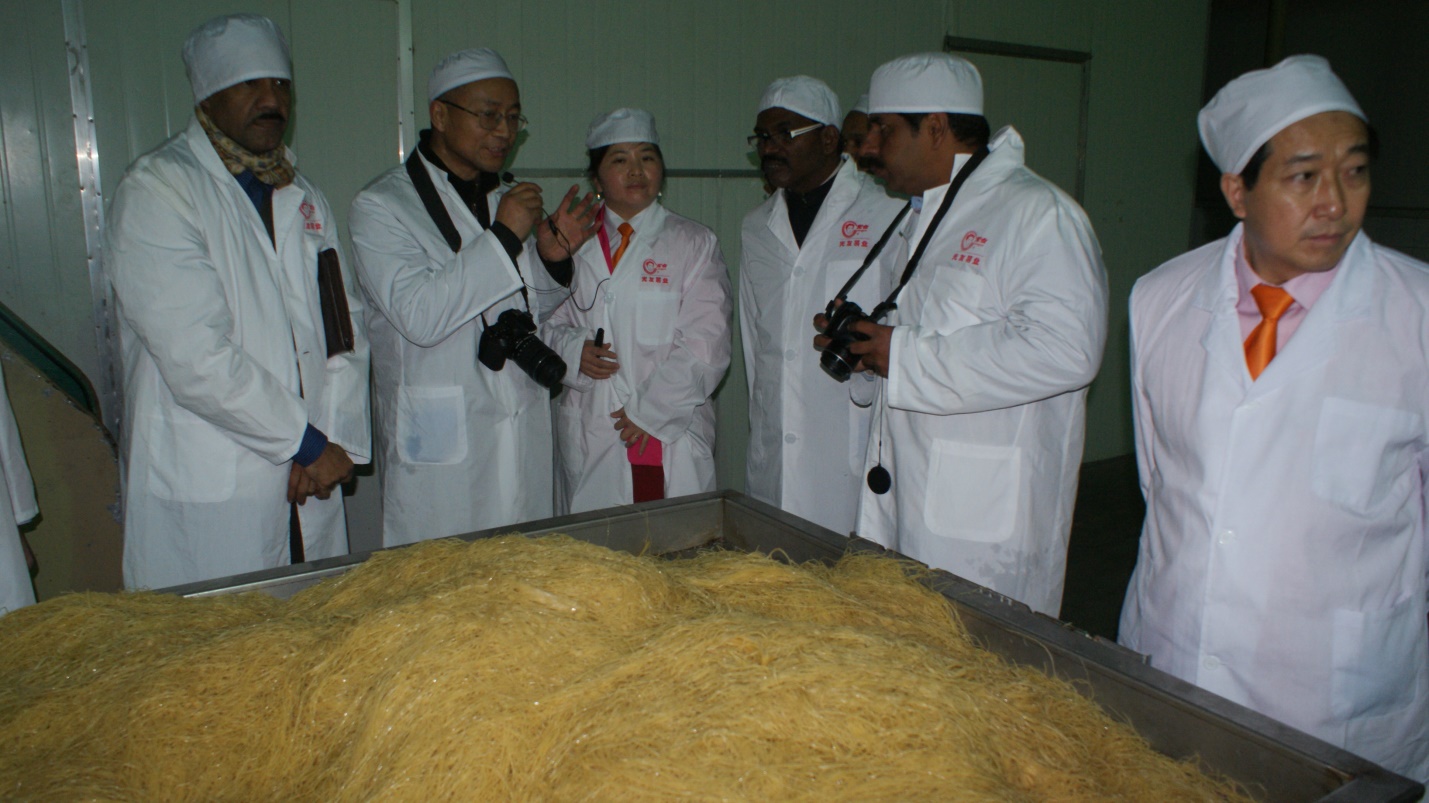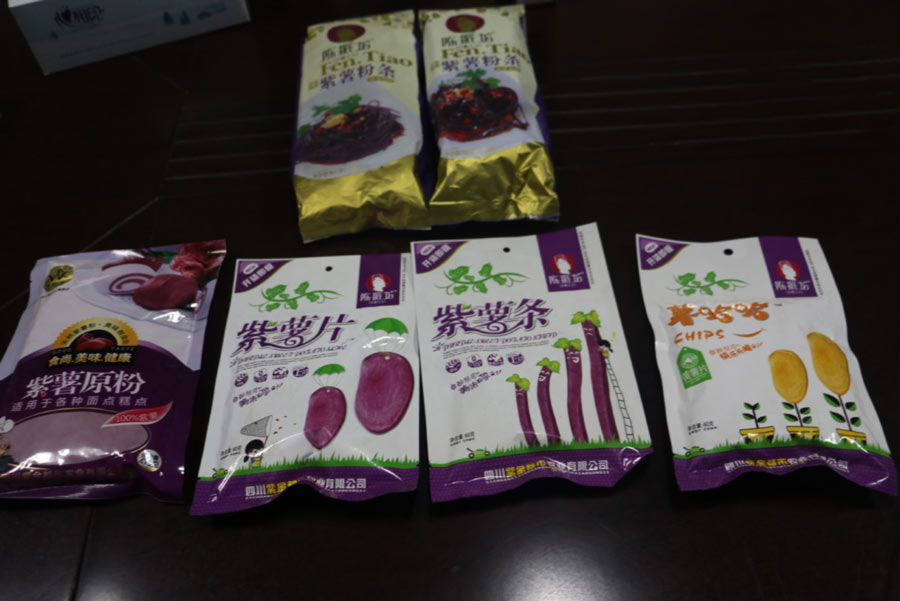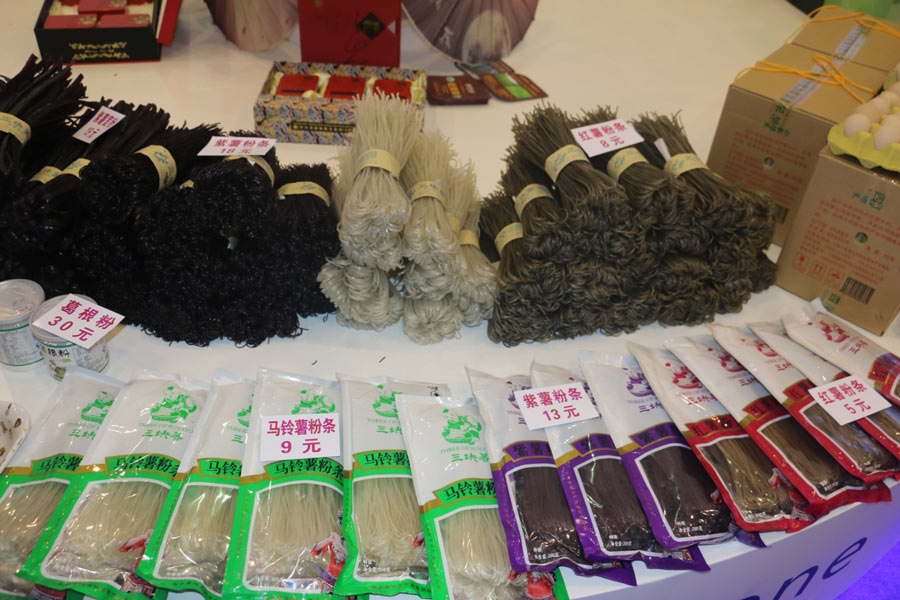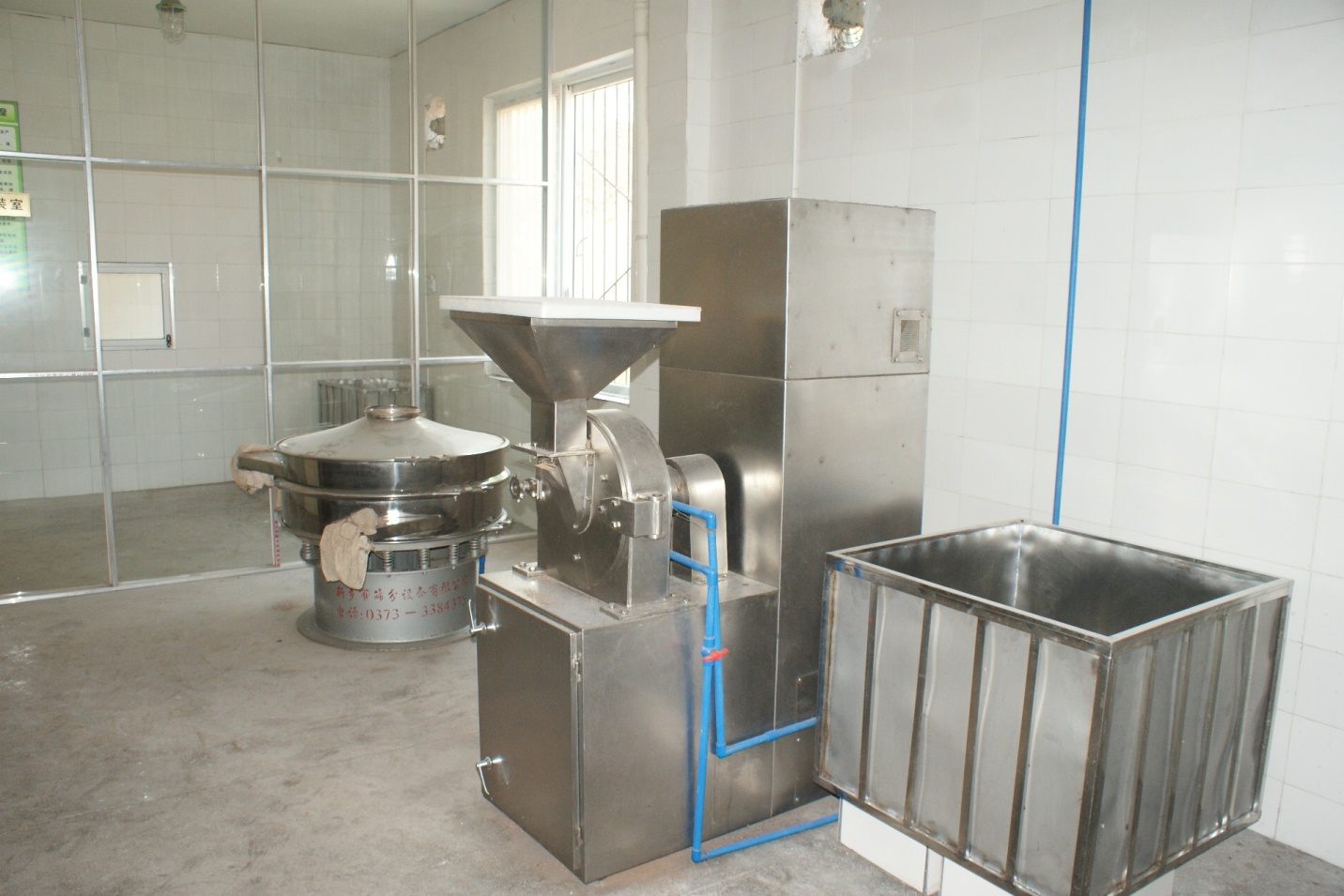The visit highlighted various outcomes of long-term research on strengthening the sweetpotato industry through processing and storage technologies, with strong support from local government and the private sector. This research has also involved close collaboration between SAAS and CIP on technology development.
Sichuan is the largest sweetpotato producing province in China with a production volume of 15 million tons per year. In the 80s, the volume of sweetpotato being processed was less than five percent (5%) of the total production. The collaboration between SAAS and CIP to improve the sweetpotato industry in China has involved the breeding of new sweetpotato cultivars and the development and testing of sweetpotato processing technologies and equipment since the 1990s.
“The breakthrough in the development of technologies of sweetpotato whole nutrition flour, starch, noodles, potato and sweetpotato instant noodles, and other snack foods became good models for large-scale sweetpotato processing in Sichuan and in China,” said Dr. Jiang Xie, sweetpotato processing specialist at SAAS and host for the study tour. The augmentation of incomes of the farmers from the improved sweetpotato technology contributed to the elevation of the local agricultural economy of Sichuan.

Dr. Xie Jiang of SAAS explains to the participants the process of noodle-making inside the Guangyou Sweetpotato Co. Ltd.
A Knowledge and Experience Exchange on Sweetpotato Processing
The technologies resulting from research collaboration of SAAS and CIP were showcased during the study tour, which involved representatives from Bangladesh Rural Advancement Committee (BRAC), USAID Horticulture Project CIP/AVRDC Bangladesh, ACI Limited Bangladesh (private sector), and Central Tuber Crops Research Institute (CTCRI) in India.
The study tour was conducted from the 25th to 31st of January 2015 and divided into four parts:
a) exchange of information on sweetpotato production and research in Bangladesh, India and China covering the industrial system for sweetpotato from variety, cultivation, harvest, storage, processing, and market systems; b) presentation on sweetpotato utilization, processing research, and processing industry of the main enterprises and farmers in Sichuan; c) visit to the laboratory of agricultural products storage and processing research demonstration, and d) visit to the companies and markets. The sweetpotato processed products discussed during the study tour were starch, noodles, instant noodles, flour, and snack foods (chips, crispy sweetpotato cakes, low sugar sweetpotato candy, etc.).

Purple sweetpotato flour and chips ready for market
Different methods of processing sweetpotato noodles were introduced and demonstrated to the participants.

Sample potato and sweetpotato noodles
Different machines used for starch and noodles by small to medium-scale processors were demonstrated, and starch refining, drying equipment, and storage facilities were also accessed by the delegates.

Sweetpotato flour processing machine
Opportunities for research collaboration with the sweetpotato industry in Asia
With the advanced and progressive sweetpotato processing technologies in China, representatives from India and Bangladesh have identified prospects for their own sweetpotato industry improvement.
The Sichuan study tour has awakened the interest of ACI Limited and encouraged the firm to be involved in the entire potato value chain in Bangladesh. Mr. M. Saifullah, the Head of Strategy for ACI Agribusiness, expressed his intention to pursue concrete collaboration with SAAS on food R&D and production of potato-based snacks – from varietal development to potato processing. This possible area of South-South cooperation can be facilitated by CIP in the future.
The improvement of storage methods and facilities is also a concern for India and Bangladesh. For storage in Bangladesh, sweetpotato is normally spread over the floor made of mud which makes the fresh roots vulnerable to the attacks of insects and fungus
As seen in Sichuan, another potential area of collaboration is the adoption of SP-based chips and flour production technologies in India and Bangladesh; hands-on plant training in technologies and machinery for SP processing and industrial products must be explored. Furthermore, initiatives on increasing community awareness of the nutritional and health benefits of sweetpotato utilization must be prioritized and reinforced.
Contact:
cip-manila@cgiar.org and a.barlis@cgiar.org
Prepared by Angelica Barlis, Communication Specialist of CIP based on the reports submitted by S.C. Nath & SSRM M.A. Sorwar (BRAC), M. Saifullah (ACI Agribusiness), M.S. Sajeev & M. Nedunchezhiyan (ICAR-CTCRI) and J.Xie (SAAS). All photos from Dr. Xie Jiang of SAAS.
